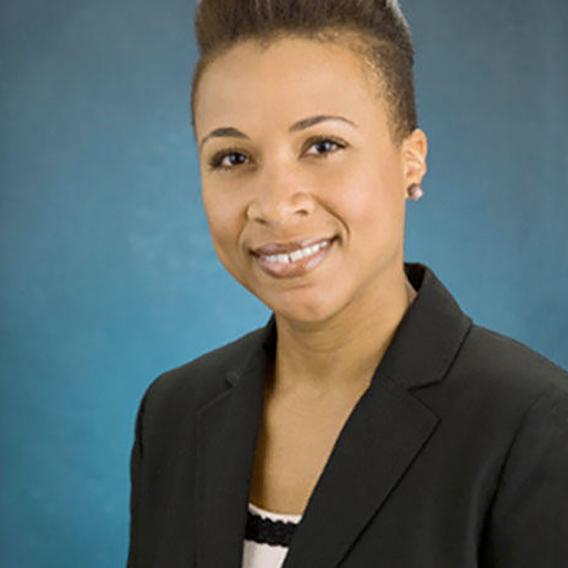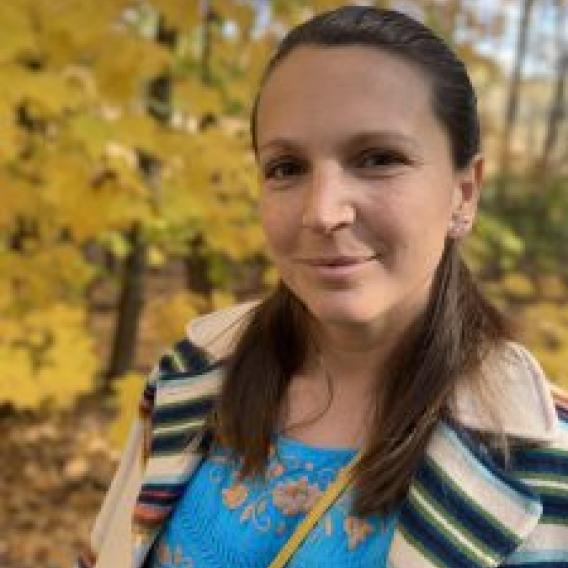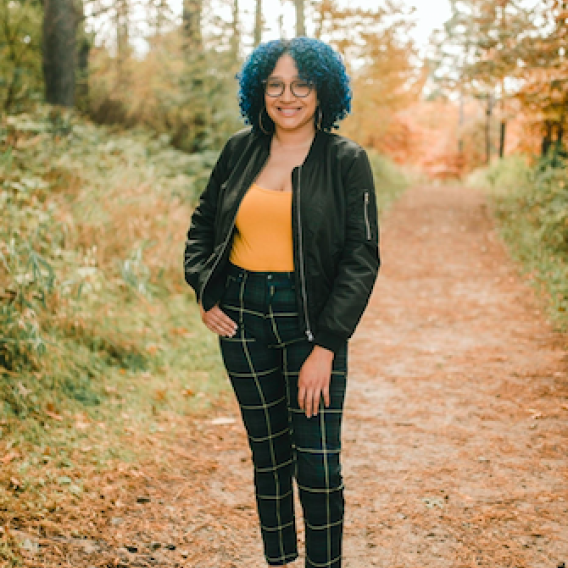Whiteness Pandemic
Whiteness Pandemic Resources for Parents, Educators, and other Caregivers

Dr. Gail Ferguson
Lab Director & Lead Author


Keira Leneman, Ph.D.
Former Graduate Fellow & Co-Author


Lauren Eales, Ph.D. Former Graduate Fellow & Co-Author


Sarah Gillespie, M. A.
Graduate Fellow & Co-Author


Aniya Armour, B.A.
Spring '21 Undergraduate Research Assistant

What is the Whiteness Pandemic?
Racism is an epidemic (CDC, 2021) that can also be considered a pandemic given its large cross-national proportion and spread (APA, 2020). However, there is another pandemic lurking behind and driving the racism pandemic – the Whiteness Pandemic. Whiteness refers to culture not biology: the centuries-old culture of Whiteness features colorblindness, passivity, and White fragility, which are all covert expressions of racism common in the United States. Naming the Whiteness Pandemic shifts our gaze from the victims and effects of racism onto the systems that perpetrate and perpetuate racism, starting with the family system. At birth, young children growing up in White families begin to be socialized into the culture of Whiteness, making the family system one of the most powerful systems involved in systemic racism.
Citation: Ferguson, G. M., Eales, L., Gillespie, S., & Leneman, K. (2021). The Whiteness pandemic behind the racism pandemic: Familial Whiteness socialization in Minneapolis following #GeorgeFloyd’s murder. American Psychologist. doi: 10.1037/amp0000874. (Click here for PDF). Click here for free public access to the paper in PubMed Central. *Recipient of the 2022 George A. Miller Award for an Outstanding Article by the American Psychological Association Division 1 (Society For General Psychology).
Dr. Ferguson explains the Whiteness Pandemic paper (6-min video especially for White parents)
Public Significance Statement of the Paper (Ferguson et al., 2021). Family socialization into the centuries-old culture of Whiteness – involving colorblindness, passivity, and fragility – perpetrates and perpetuates U.S. racism, reflecting an insidious Whiteness pandemic. As a case study immediately following the high-profile 2020 police homicide of Black unarmed Minneapolis resident – George Floyd – by a White police officer, we found that most White Minneapolis mothers displayed apathy or were overwhelmed and fearful, and avoided discussing Floyd’s murder or systemic racism with their children. On the other hand, mothers with more advanced White racial identity development (only 17%), who embraced multiculturalism more fully and felt less of a need to protect their own ethnic/racial group, displayed grief, concern, and hope, and discussed Floyd’s murder and Black Lives Matter with their children using color- and power-conscious parenting.
Dedication: We dedicate this paper to the living memory of Mr. George Floyd and to all the other Black and Brown individuals who have been killed by police including Mr. Daunte Wright, who was fatally shot at a traffic stop in Minneapolis metro area just days before Derek Chauvin was convicted for Floyd’s murder (see incomplete list of names from 1968 to 2021 in the United States).
Press
-
Dr. Ferguson explains "The importance of talking to children about race and racism (including your own)" in this MinnPost Op-Ed
- "When parents and other adults are silent about race, it communicates apathy or approval of racism, even if that’s not what adults intend." Click here to read the Op-Ed.
- Dr. Ferguson explains that "The Whiteness Pandemic is Behind the Racism Pandemic" in this blog post for "Character and Context" from the Society for Personality and Social Psychology
- Dr. Ferguson, Lauren Eales, Sarah Gillespie, and Keira Leneman's paper on the Whiteness Pandemic received the 2022 George A. Miller Award for an Outstanding Article by the American Psychological Association Division 1 (Society For General Psychology). Read more here.
- Dr. Ferguson was interviewed for the local Star Tribune about her Whiteness Pandemic project. Read the interview here to learn more about the study and preliminary findings a year later.
How do we halt and reverse the Whiteness Pandemic?
If you were born or raised in the United States, you have grown up in the Whiteness Pandemic, and you can play a role in halting and reversing this pandemic, especially if you are White because of the power and privilege you hold in this racialized society. If you were socialized into the culture of Whiteness during childhood it is not your fault, but as an adult it is now your responsibility to self-reflect, re-educate yourself, and act. If you are a White adult, antiracist action involves an ongoing process of self-reflection in order to develop a healthy positive White identity while engaging in courageous antiracist parenting/caregiving.
Self-Reflection + Courageous Parenting/Caregiving
(i.e., healthy White identity development + antiracist parenting)
Practical Resources for Self-Reflection to Develop a Healthy White Racial Identity
(curated by Keira Leneman)
Talking with children about race, racism, and antiracism is only beneficial if you, as the White parent/educator/caregiver, are personally committed to growth in your own antiracism journey. Many White parents are already on this journey by self-reflecting on and pursuing growth in their own White racial identity while actively listening to and amplifying the voices of Black individuals and other individuals of color. Here are some suggestions for ways to further develop your own White racial identity:
- Showing up for Racial Justice (SURJ): A national network with local chapters working to undermine White supremacy and advance racial justice. Focused on moving White people to act as part of a multi-racial movement in partnership with organizing led by communities of color. Keira has joined the local Twin Cities chapter and finds a lot of helpful educational and action-oriented content on their Instagram feed (@showingupforracialjustice).
- Black Lives Matter (BLM): A global organization working to eradicate White supremacy through centering Black liberation as the key to all liberation, grassroots organizing, and local and global actions. By listening to, taking seriously, and following the stories and recommendations of this group, we are trusting the lived experiences and priorities of Black people and thereby supporting the liberation of all people.
- Me and White Supremacy workbook: Authored by Layla Saad, this workbook is centered on self-reflection as the necessary personal work required for aligning values (e.g., racial equality) with practice (e.g., antiracist action). Keira has been working through this in a book club format with other White and White-presenting friends and has found that format to be helpful for accountability in critical self-reflection as well as turning that into antiracist action.
- A Race is a Nice Thing to Have: A Guide to Being a White Person or Understanding the White Persons in Your Life (3rd Edition, 2020): Authored by Dr. Janet Helms herself, Augustus Long Professor at Boston College, who developed the most influential theory of White identity development that we used in our Whiteness Pandemic study. This short book is extremely accessible and packed with practical with exercises at the end of many chapters as well as space to journal at the end of the book.
- What Does it Mean to be Antiracist?: Handout from The Racial Healing Handbook by Dr. Anneliese Singh (2019). This handout offers a concise outline of what it means to become antiracist as a White person (and then what it means to become antiracist as a Person of Color).
- For Academics -- Academics for Black Survival and Wellness: An organization providing both healing for Black folx and accountability for Non-Black folx through trainings/workshops. Keira and other graduate students and faculty in our department have participated and learned so much about critical self-reflection, historical patterns of oppression, and antiracist actions and allyship, particularly tailored to the academic context.
Practical Resources for Courageous Parenting, Teaching, and Caregiving
(curated by Dr. Gail Ferguson)
Race matters in the United States because racism still exists. Young children perceive much more than we usually realize, and when parents, teachers, and other adults are silent around race it communicates apathy or approval of racism although this may be the opposite of what adults intend.
Acknowledging race and racism with your children will not make them racist. In fact, having explicit conversations with your children about race and racism is essential to making them antiracist (i.e., able to detect and confront racial biases in themselves and around them).
Adults teach children the concepts of fairness/unfairness, justice/injustice, and accountability/lack thereof, but often these abstract conversations occur in the living room or the classroom and are not connected to everyday life experiences. Children need concrete real-life examples of fairness/unfairness, justice/injustice, and accountability/lack thereof to deepen their understanding of these concepts in relation to race and racism. For example, we can use events in the media to initiate conversations – this allows us to move from abstract to concrete specifics of real-life experiences. This is necessary if children are going to be antiracist. Adults also need to strengthen children's empathy by humanizing victims of police brutality and racism – such as Mr. George Floyd – by recognizing that these individuals are someone's father/brother/son/neighbor/friend.
If you are new to conversations around race, racism, white privilege or antiracism it may help to plan ahead on how to start a brief conversation with your child/ren. Like other parenting discussions, one single long speech may not be the most beneficial for your child’s understanding; rather, short frequent conversations, especially at key natural, teachable moments are best. The American Psychological Association, Division 37 (The Society for Child and Family Policy and Practice) has curated a comprehensive list of antiracism resources and we have reviewed and culled a few here that we think may be most helpful in preparing to discuss race, racism, and antiracism with children, including incidents of race-related police shootings. Note: #1-#5 have simple yet comprehensive guidelines that are a solid starting point.
Other resources for practical reflection include reading about the "finer lines" of White racism ("White Anti-Racism: Living the Legacy" with Sejal Patel) and following anti-racist social media creators like Ashani Mfuko on TikTok.
What to read or watch to prepare to talk with children about race, racism, white privilege, and antiracism
For White parents/caregivers or parents/caregivers of White children
- Talking to children about racism by Dr. Katie Lingras (online post)
- How to explain White privilege in terms simple enough for a child by Mareesa Brown (online post)
- George Floyd. Ahmaud Arbery. Breonna Taylor. What do we tell our children? by Alia Dastagir (article)
- 8 Tips for Talking to Your Child About Racial Injustice by Marianne Celano, Ph.D., Marietta Collins, Ph.D., & Ann Hazzard, Ph.D. (online post)
- Talking to Children After Racial Incidents by Dr. Howard Stevenson (online post)
- What is “The Talk” White parents should have with White children? by Madeleine Rogin (online post)
- Sesame Street in Communities: Racial Justice (video)
- 10 Keys to Everyday Anti-Racism (online post)
- Anti-Racism Resources for All Ages by Dr. Nicola A. Cooke (online compilation)
- How to Raise an Antiracist by Ibram X. Kendi (book)
- How White parents can use media to raise anti-racist kids (online post)
- Antiracist Parenting Podcast
- Raising Good Humans Podcast
- Raising Antiracist Children by Britt Hawthorne (book)
- How to talk to your toddler about race (online post)
What to read and watch with children as part of a discussion about race, racism, white privilege, and antiracism
For White children and their parents/caregivers
- Not My Idea: A Book About Whiteness (video)
- Race Cars (video)
- Something Happened In Our Town: A child’s story about racial injustice (video)
- Antiracist Baby by Ibram X. Kendi
- Goodnight Racism by Ibram X. Kendi
- Arthur on Racism: Talk, Listen, Act (video)
- Our Skin: A First Conversation About Race by Megan Madison and Jessica Ralli
- How to be a (Young) Antiracist by Ibram X. Kendi and Nic Stone
- This Book is Anti-Racist: 20 Lessons on How to Wake Up, Take Action, and Do the Work by Tiffany Jewell (targeted towards adolescents/young adults)
For parents/caregivers and children of all racial backgrounds
We do suggest that you read/watch these resources on your own first as an opportunity to self-reflect and process your own reactions before introducing the ideas/videos to your children. This will allow you to attend to children’s curiosities and reactions when you talk with them, rather than being caught up in your own mental and emotional processes.
- Talking to young children about race and racism (PBS Kids: 28 mins). Dr. Ferguson has watched this with her 7 year-old and her 2-year-old with brief discussion after. They give this a 6 thumbs up! It has clips of Daniel Tiger, Arthur, etc. and there are real children and their parents (White, Black, Asian, Multiracial) who talk about race/racism/antiracism after each clip. This serves as excellent modeling for all of us as parents and teachers who might feel nervous or unsure about what to say.
- The power of we (Sesame St. & PBS kids special). Dr. Ferguson watched this with her 7 year-old and her 2-year-old followed by brief discussion after. It's impressive that they explicitly define racism at the beginning in simple kid-friendly language (treating someone unfairly because of the color of their skin, etc.). Dr. Ferguson strongly vouches for this video because it focuses on simple but powerful antiracist actions children can use to be "upstanders" who stand up to racism - they use dialogue, songs, and catchy jingles.
- How to explain racism to kids (CNN & Sesame Street Racism Town Hall: 2 parts: 22 mins & 17 mins) This is an older 2 part video that was released right after the murder of Mr. George Floyd.
- Kojo For Kids: Jason Reynolds Talks About Racism And The Protests (24 min audio recording of best-selling YA author Jason Reynolds talking about racism)
- Centering Black Voices on Netflix (a collection of projects and media centering Black voices from Netflix)
- Nick News Presents: Kids, Race, and Unity hosted by Alicia Keys (44 min video). You can watch this with your child and use this companion discussion guide.
- Rise Up! How You Can Join the Fight Against White Supremacy by Crystal Fleming. This book is meant for youth and provides a guide to the history of racism and what youth can do.
For White educators and administrators
- Principal Mauri Friestleben in the Twin Cities delivers a brief but powerful message (see her full-length documentary “Love Them First” here).
- 10 ways well-meaning White teachers bring racism into our schools
- 27 mistakes White teachers of Black students make and how to fix them
- How to teach racial acceptance, article for educators and school systems.
- How should I talk about race in my mostly White classroom?
- Talking about race in mostly White schools
- It's not so Black and White: Discussing race and racism in the classroom has advice from Dr. Beverly Tatum for discussing slavery and race-related matters in PreK-8
- Antiracist Homeschooling Instagram account contains resources for homeschooling parents
- Five Activities to Promote Diversity in the Classroom
- 135 Racial Equity Resources for Education, Professional & Community Development, Health, and Civil Rights
Funding
This Whiteness Pandemic project is funded by the Institute of Child Development, University of Minnesota (Ferguson); a predoctoral fellowship from the NIMH under Award Number T32 MH015755 (Eales; PI: Cicchetti); a Provost Research Fellowship from the University of Minnesota (Gillespie); and an Interdisciplinary Doctoral Fellowship from the University of Minnesota (Leneman).
Want More Details?
Click here to view and download annotated summaries of key resources listed on this webpage. This document was created by Undergraduate Research Assistant, Aniya Armour, and her Mentor, Keira Leneman, M.A. during the Spring semester of 2021.